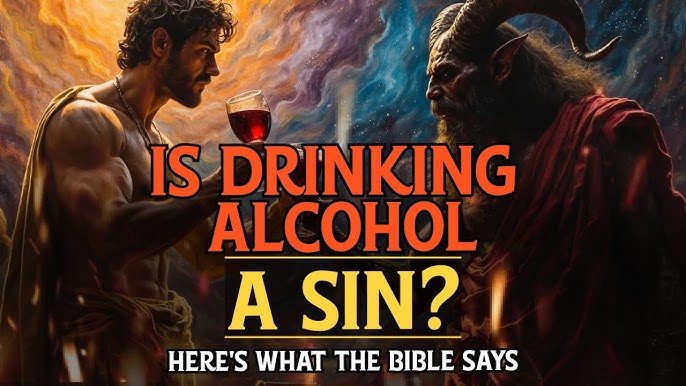Is Drinking Alcohol A Sin? What The Bible Really Says

Alcohol is one of those topics that sparks debate among Christians everywhere. Some believe that taking even a single sip is sinful, while others argue that drinking in moderation is acceptable.....CONTINUE READING THE FULL STORY HERE
To truly understand this issue, it is important to look at what the Bible actually says about alcohol and how believers are called to handle it.
First, the Bible does not outright forbid drinking alcohol.
In fact, wine is mentioned several times in Scripture, often in positive contexts.
For instance, Jesus turned water into wine at the wedding in Cana (John 2:1-11), and Paul even advised Timothy to take a little wine for his stomach’s sake (1 Timothy 5:23).
These verses show that alcohol itself is not inherently evil.
However, the Bible strongly warns against drunkenness.
Ephesians 5:18 says, “Do not get drunk on wine, which leads to debauchery.
Instead, be filled with the Spirit.” Proverbs 20:1 also cautions that wine can be a mocker and beer a brawler, reminding us that excessive drinking leads to poor judgment and sin.
So the real issue is not the drink itself but losing self-control through drunkenness.
Christians are also called to consider their witness and influence.
Romans 14:21 advises believers not to do anything that causes others to stumble.
That means if drinking alcohol around certain people could harm their faith, it may be better to abstain out of love and wisdom.
Ultimately, drinking alcohol is not automatically a sin, but it can become sinful depending on how it is used.
Moderation, self-control, and wisdom are key. A Christian’s life should be guided by the Holy Spirit, not by a bottle.
In conclusion, the biblical truth is clear: alcohol in itself is not forbidden, but drunkenness is a sin.
As a believer, you must ask yourself—does drinking draw me closer to God or pull me away? The answer to that will guide your choice.
